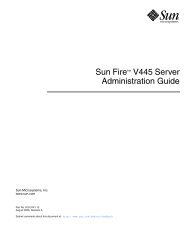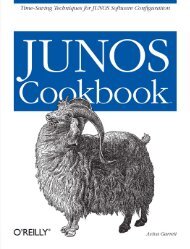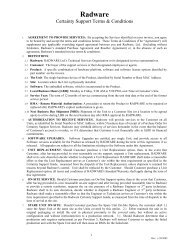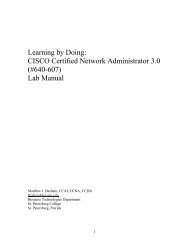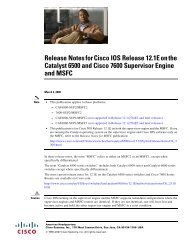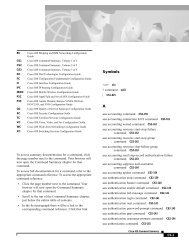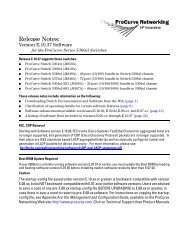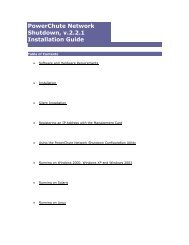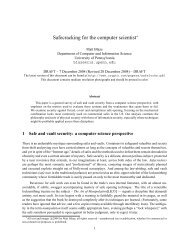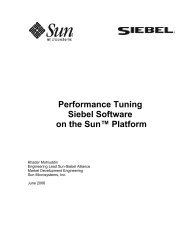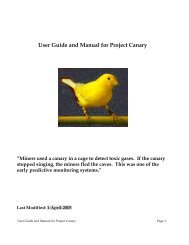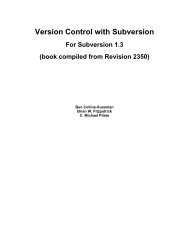Postfix Overview - Introduction - SCN Research
Postfix Overview - Introduction - SCN Research
Postfix Overview - Introduction - SCN Research
You also want an ePaper? Increase the reach of your titles
YUMPU automatically turns print PDFs into web optimized ePapers that Google loves.
Page 2 of 3<br />
user@domain address<br />
user@domain is replaced by address. This form has<br />
the highest precedence.<br />
This form useful to clean up addresses produced by<br />
legacy mail systems. It can also be used to produce<br />
Firstname.Lastname style addresses, but see<br />
below for a simpler solution.<br />
user<br />
address<br />
user@site is replaced by address when site is equal<br />
to $myorigin, when site is listed in $mydestination,<br />
or when it is listed in $inet_interfaces.<br />
This form is useful for replacing login names by<br />
Firstname.Lastname.<br />
@domain address<br />
Every address in domain is replaced by address.<br />
This form has the lowest precedence.<br />
In all the above forms, when address has the form @otherdomain,<br />
the result is the same user in otherdomain.<br />
ADDRESS EXTENSION<br />
When table lookup fails, and the address localpart contains<br />
the optional recipient delimiter (e.g.,<br />
user+foo@domain), the search is repeated for the unextended<br />
address (e.g. user@domain), and the unmatched<br />
extension is propagated to the result of table lookup. The<br />
matching order is: user+foo@domain, user@domain, user+foo,<br />
user, and @domain.<br />
REGULAR EXPRESSION TABLES<br />
This section describes how the table lookups change when<br />
the table is given in the form of regular expressions. For<br />
a description of regular expression lookup table syntax,<br />
see regexp_table(5) or pcre_table(5).<br />
Each pattern is a regular expression that is applied to<br />
the entire address being looked up. Thus, user@domain mail<br />
addresses are not broken up into their user and @domain<br />
constituent parts, nor is user+foo broken up into user and<br />
foo.<br />
Patterns are applied in the order as specified in the<br />
table, until a pattern is found that matches the search<br />
string.<br />
Results are the same as with normal indexed file lookups,<br />
with the additional feature that parenthesized substrings<br />
from the pattern can be interpolated as $1, $2 and so on.<br />
BUGS<br />
The table format does not understand quoting conventions.<br />
CONFIGURATION PARAMETERS<br />
The following main.cf parameters are especially relevant<br />
to this topic. See the <strong>Postfix</strong> main.cf file for syntax<br />
details and for default values. Use the postfix reload<br />
command after a configuration change.<br />
http://www.porcupine.org/postfix-mirror/canonical.5.html<br />
6/26/01




